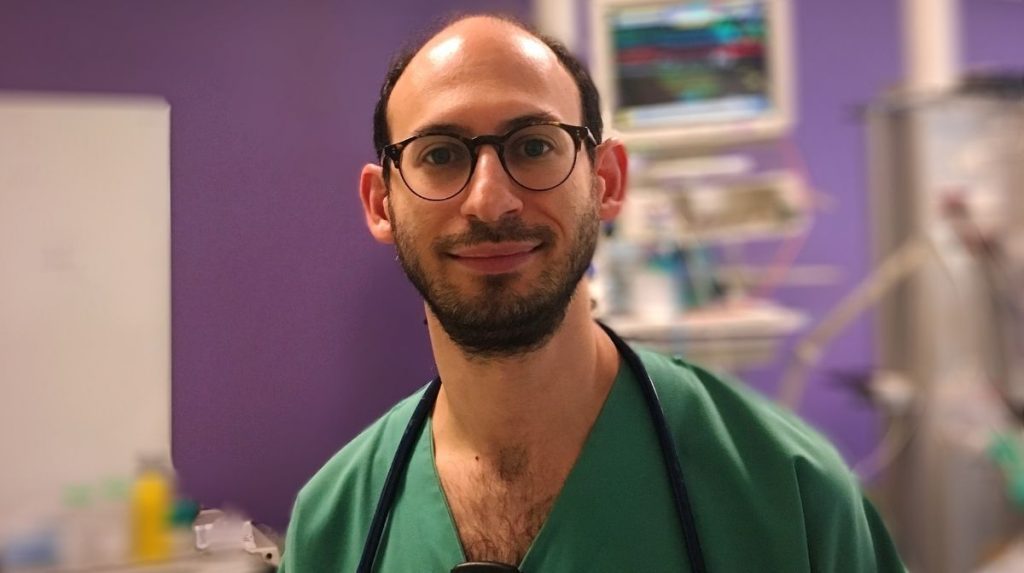Benjamin Chousterman Tackles Sepsis
Benjamin Chousterman is an anesthesiologist, lecturer and researcher. And what do these activities all have in common? The answer is sepsis – the final stage of infection that leads to failure of the vital organs. Chousterman treats patients with this severe condition and in parallel studies the immune mechanisms that cause it. A recipient of Atip-Avenir funding in 2020, he created his own research team in order to continue his work to improve patient care.

Anesthesiologist at Lariboisière Hospital, lecturer at Université de Paris and leader of a research team, Benjamin Chousterman plays several roles that he puts to good use in fighting the severest form of infection: sepsis. « This severe condition most often occurs with a bacterial disease such as pneumonia or pyelonephritis, and is characterized by failure of the vital organs, explains the physician-researcher. It affects around 50 million people each year worldwide. Some 20% of patients die in the ICU during the acute phase, and just as many in the following year. As for the survivors, they develop long-term complications. We have long understood that the infectious agent is not the only cause: the patient’s immune system plays an important role. But elucidating the determining factors, mechanisms and long-term effects remains a difficult task. » Chousterman recently set up his own group within the Cardiovascular Markers in Stress Conditions (MASCOT)* Inserm research unit.
From interleukin 3 to macrophages
His interest in sepsis is nothing new: it developed during his medical training, probably after being exposed to the most dramatic cases. This led him to complete his residency in nine years instead of five, so that he could devote himself to research. After doing a two-year Master’s as part of a CNRS team, Chousterman decided to prepare a science PhD as part of Christophe Combadière’s Inserm team. This involved studying the role of chemokines – molecules that guide immune cells to inflammatory sites during the acute phase of sepsis. Keen to continue in that direction, he contacted Massachusetts General Hospital – the hospital of Harvard Medical School in Boston, USA – to set up a new project on the subject. There he studied innate immunity in sepsis and made an important discovery in 2015 on the role of interleukin 3: « This molecule fuels the motor of inflammation associated with sepsis. If the cells that produce it are absent or dysfunctional, the sepsis is less severe, » he explains. On returning to France, Chousterman completed his residency and quickly became an associate researcher in the MASCOT unit, affiliated with the intensive care unit where he works at Lariboisière Hospital. In 2020, he set up a project on the role of macrophages in sepsis and was awarded Atip-Avenir funding to set up his own team. « We observed the recruitment of macrophages in failing organs, different from those usually resident there: our research shows that correcting this abnormality improves patient recovery, » he reveals.
Transformational funding
« I have always done research in addition to medicine, to get the best of both worlds, » he smiles. But since receiving Atip-Avenir funding, which is rarely awarded to doctors, my research has taken on a new dimension. In addition to the recognition of my project and career, I have been able to set up a team composed of PhD students, a Master’s student, a technician, a bioinformatician… with a longer-term vision than that permitted by one-off calls for proposals. This program is truly ‘transformational’ for a researcher. »
Note:
*unit 942 Inserm/Université de Paris, Cardiovascular Markers in Stress Conditions (MASCOT), Hôpital Lariboisière, Paris
